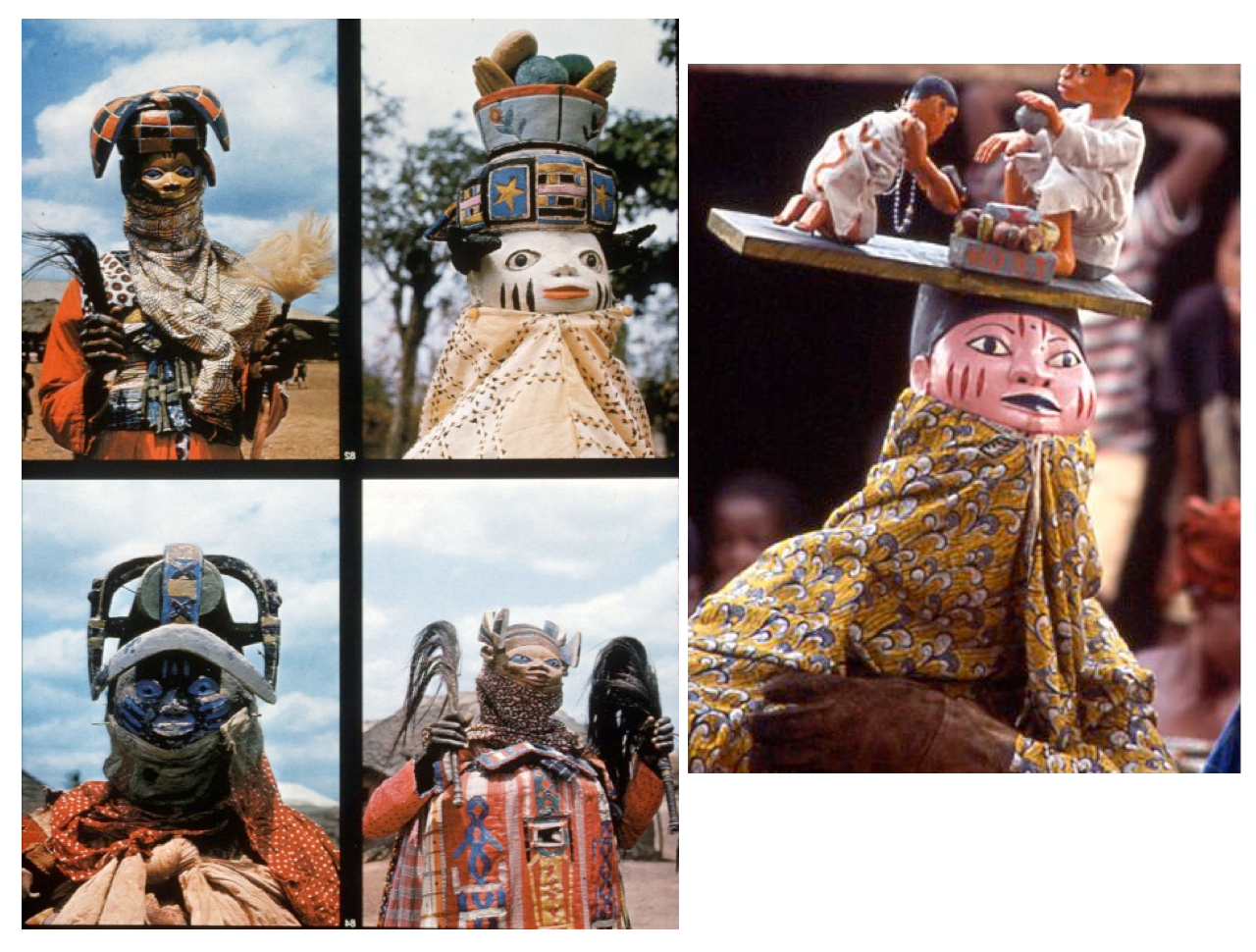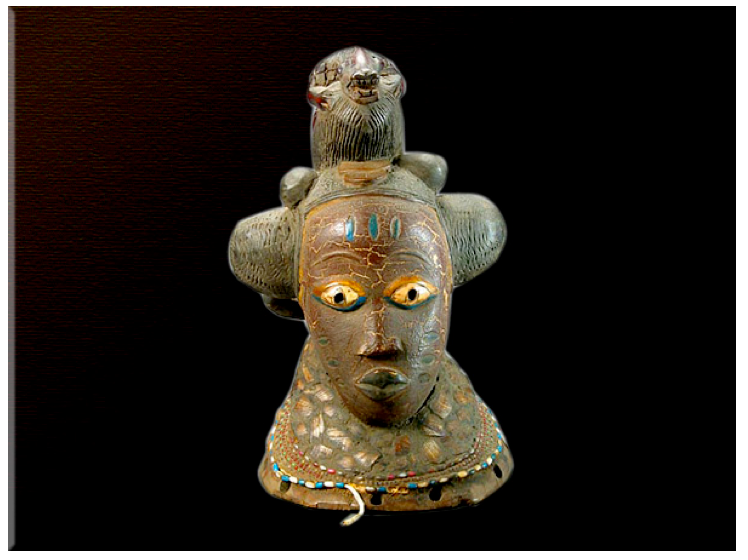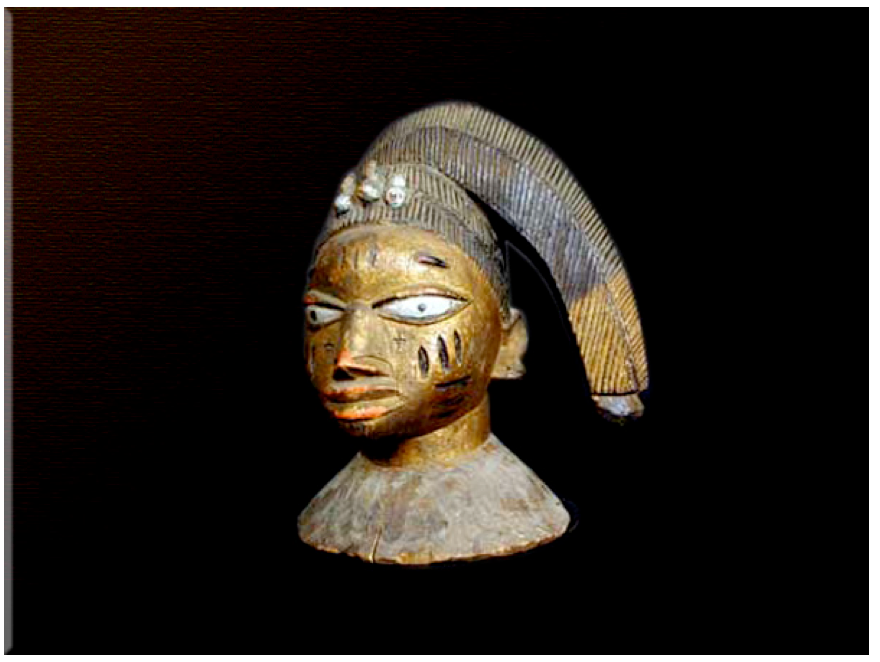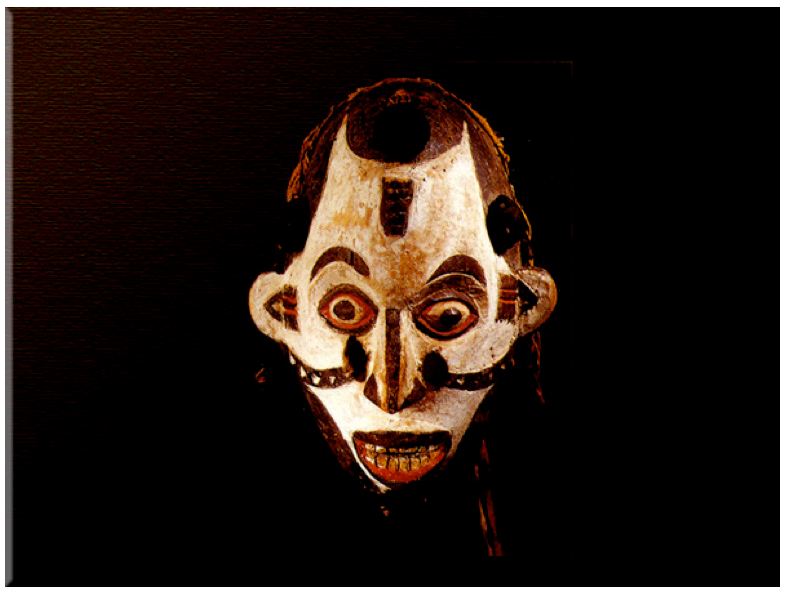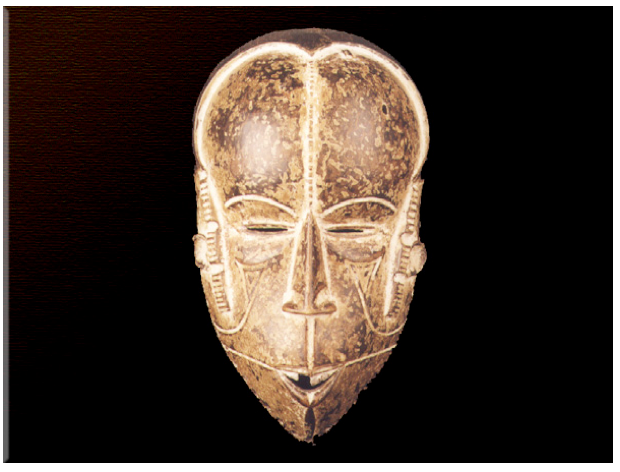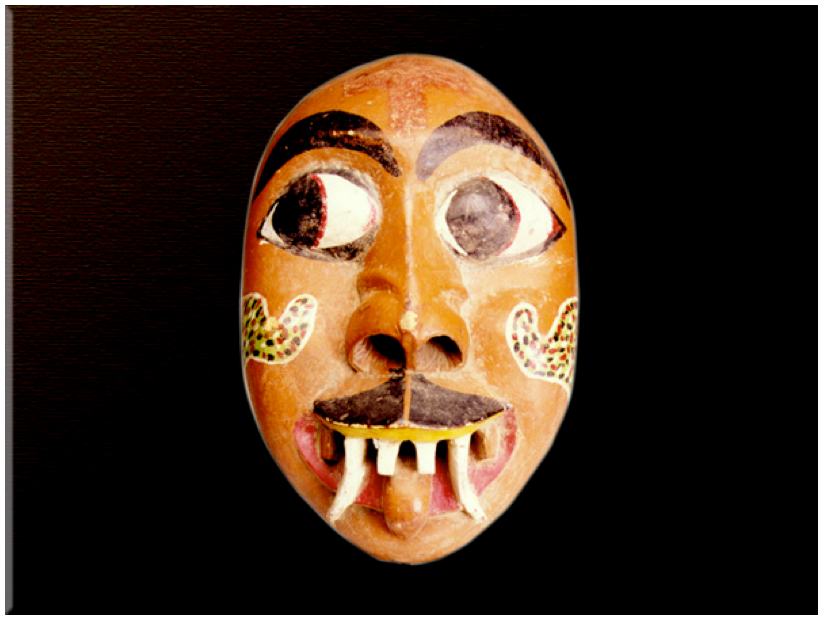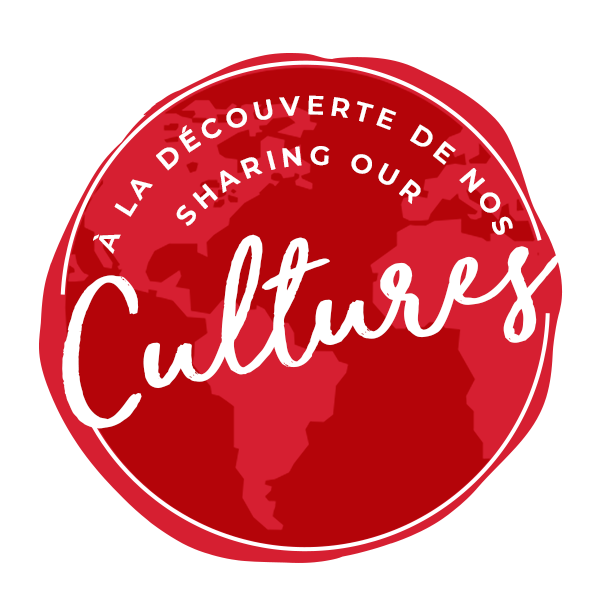Nigeria
NIGERIAN MASKS
Ritual and Ceremonial masks are an essential feature of the traditional culture and art of the people in Nigeria and most countries in West Africa. Masks usually have a spiritual and religious meaning and they are used in ritual dances and social and cultural events. A special status is attributed to artists that create masks and those that wear them in ceremonies. Mask making is an art that is passed on from father to son, along with the knowledge of the symbolic meanings conveyed by such masks.
RITUAL AND SOCIAL MEANINGS
In most traditional African cultures, the person who wears a ritual mask loses his or her human identity and turns into the spirit represented by the mask itself. This transformation of the mask wearer into a spirit usually relies on other practices such as specific types of music and dance or ritual costumes that contribute to conceal the mask wearer’s human identity. The mask wearer thus becomes a sort of medium that allows for dialogue between the community and the spirits. Every mask has a specific spiritual meaning. Masks are usually used in various festivals and can also be used as decorations.
About Nigeria
Nigeria is located in West Africa and shares land borders with the Republic of Benin in the west, Chad and Cameroon in the east, and Niger in the north. The name Nigeria was taken from the River Niger running through the country. This name was coined by Flora Shaw, the wife of Baron Lugard, a British colonial administrator, in the late 19th century. Nigeria comprises of 36 states with Abuja being the Federal Capital Territory.
Nigeria has more than 250 ethnic groups and over 510 languages. The three main languages are Yoruba, Hausa, and Igbo and the official language is English. Nigeria is the largest country in Africa in terms of population. It has a population of approximately 170,123,740 people. The main religions are Islam and Christianity. Nigeria was once colonized by the British but gained independence on October 1st, 1960.
Yoruba Wooden Polychrome Gelede Mask
Gelede is an annual festival honouring “our mothers” (awon iya wa) not so much for their motherhood but as female elders. The celebration is recognizing the power and spiritual capacity women have in society. It takes place when the dry season ends (March–May) among the Yoruba people of southwest Nigeria and neighboring southeast Benin.
The Gelede ceremony involves a performance with a carefully choreographed dance, singing, music, and especially drumming. The performances are by men wearing masks that feature sculpted images. Dozens of masquerading pairs may take part. The daytime festival is held in the marketplace and is preceded the night before by an Efe ceremony at which male masks are used by ‘jesters’ who make satirical performances.
The Epa association honors deities and cultural heroes at masked festivals. The masks with large base heads of deceased ancestors are treated with less naturalism than the superstructure that depicts and honors mothers with children, warrior/hunters, animals, and rulers with their large entourages in impressive sculptural form.
This is a Yoruba Egungun mask used during the Egungun festival. It is made from local materials. The mask is worn during a dance performance, as the dancer performs strips of the cloth “fan” out. The dancer’s body is never revealed.
A Nigerian mask from the Angas people made from vegetable fibre, hair and poisonous red abrus seeds.
These masks are slightly similar and are both from Benin. They are made from ivory. Although images of women are rare in Benin's courtly tradition, these two works have come to symbolize the legacy of a dynasty that continues to the present. The pendant mask is believed to have been produced in the early 16th century for the King or "Oba" Esigie, the King of Benin, to honor his mother, Idia. The Oba may have worn it at rites commemorating his mother. Today, such pendants are worn at annual ceremonies of spiritual renewal and purification. In Benin, ivory is related to the color white, a symbol of ritual purity associated with Olokun, god of the sea, a source of extraordinary wealth and fertility. The mask is a sensitive, idealized portrait, depicting its subject with softly modeled features, bearing inlaid metal and carved scarification marks on the forehead, and wearing bands of coral beads below the chin.
For the Queen Mother Pendant Mask, the tiara and collar are decorated with mudfish and the bearded faces of Portuguese. Because they live both on land and in the water, mudfish represent the king's dual nature as human and divine. Having come from across the seas, the Portuguese were considered denizens of the spirit realm who brought wealth and power to the "Oba" while the top of the Edo Ivory Mask is decorated with heads representing the Portuguese, symbolizing Benin's alliance with and control over Europeans.
Mask Gallery
